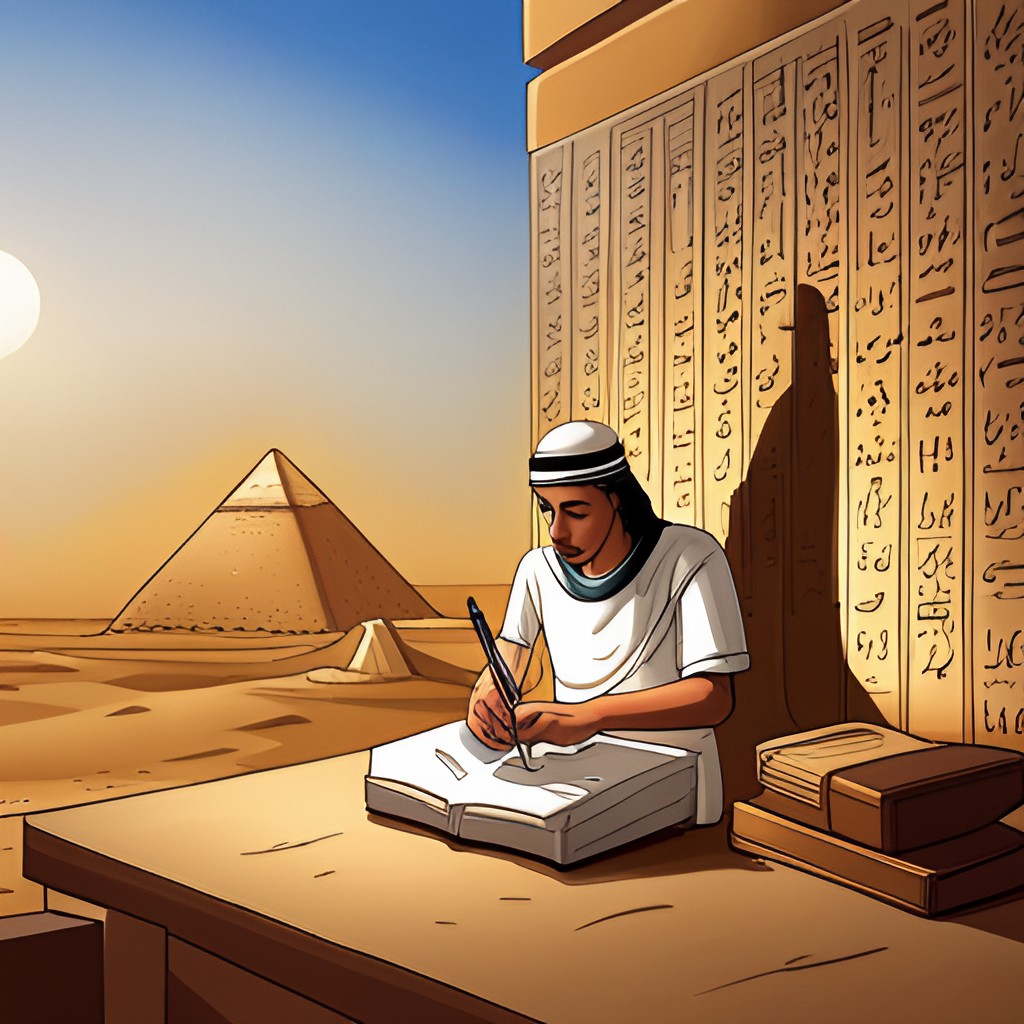Ancient Egypt, a civilization that thrived for millennia along the Nile River, was not only renowned for its majestic pyramids and pharaohs but also for the pivotal role played by its scribes. These educated individuals held a prestigious position in society, wielding power through the written word. The topic on What Did Scribes Do in Ancient Egypt? is just understanding the scope of their duties and influence illuminates the fascinating world of ancient Egyptian bureaucracy and knowledge.
1. Who Were the Scribes?
Role and Importance
Scribes were a distinct class of individuals highly regarded for their ability to read, write, and perform administrative tasks. They were entrusted with recording history, managing accounts, and documenting legal transactions. Their role was indispensable in maintaining order and preserving the rich cultural heritage of Egypt.
Training and Education
Becoming a scribe involved rigorous training, typically initiated in childhood. Education focused on mastering hieroglyphs and other forms of writing, as well as mathematics and law. Only a select few could afford this specialized education, which contributed to the elite status of scribes.

2. Functions and Duties of Scribes
Writing and Record-Keeping
Scribes were primarily responsible for transcribing religious texts, documenting trade deals, and recording court proceedings. Their meticulous records ensured the smooth functioning of Egyptian society, providing invaluable insights into daily life and historical events.
Administrative Tasks
Apart from writing, scribes were integral to the bureaucratic machinery. They managed tax collection, surveyed lands, and supervised construction projects. Their efficiency in handling administrative tasks was crucial for the kingdom’s governance.
3. Scribe Hierarchies and Positions
Scribes operated within a structured hierarchy. While some served as chief scribes overseeing departments, others worked as accountants or copyists. The chief scribe held significant power, acting as an advisor to the pharaoh and wielding influence in decision-making.
4. Tools and Writing Materials Used
To carry out their tasks, scribes utilized papyrus scrolls, brushes, and ink made from natural materials. These tools facilitated the creation of enduring written records, contributing to the preservation of Egypt’s history.
5. Scribe’s Impact on Ancient Egyptian Society
Social Status and Prestige
Scribes enjoyed elevated social status due to their knowledge and association with the ruling class. Their expertise in writing and interpretation of texts elevated them above common citizens.
Influence on Government and Religion
Their proximity to power allowed scribes to influence political decisions and religious practices. They played a significant role in shaping both governance and religious rituals, perpetuating the authority of the pharaohs.
6. Women in Scribal Roles
Although predominantly a male-dominated field, some women also became scribes, albeit in smaller numbers. They faced societal challenges but contributed substantially to the preservation of knowledge and administrative duties.
7. Decline of Scribe Importance
Technological Advances
The introduction of more efficient writing materials and technological advancements diminished the exclusivity of scribal duties. The use of parchment and later paper altered the dynamics of record-keeping.
Social Changes
As societal structures evolved, the significance of scribes waned. New professions emerged, altering the traditional roles once held exclusively by scribes.
8. Legacy of Ancient Egyptian Scribes
Influence on Writing Systems
The legacy of scribes endures in the form of hieroglyphs and other ancient writing systems. Their meticulous work laid the foundation for modern understanding of Egyptian history and language.
Historical Documentation
Their meticulous records serve as invaluable historical documentation, providing insights into the daily lives, governance, and cultural practices of ancient Egypt.
In conclusion, the scribes of ancient Egypt were not merely writers but guardians of knowledge and architects of history. Their contributions transcended time, shaping the civilization and leaving an indelible mark on the world’s cultural heritage.
Read also: How Did the Nile Shape Ancient Egypt? 6 key points
FAQs About What Did Scribes Do in Ancient Egypt?
- Were all scribes men in ancient Egypt?
While predominantly male, some women did become scribes, though in smaller numbers compared to men. - How long did it take to become a scribe?
Becoming a scribe required years of rigorous education, typically starting in childhood and lasting into adulthood. - What tools did scribes use for writing?
Scribes used papyrus scrolls, brushes, and ink made from natural materials for their writings. - What led to the decline of scribe importance in ancient Egypt?
Technological advancements and social changes contributed to the decline, introducing new materials and altering societal structures. - How did scribes influence religion in ancient Egypt?
Scribes held influence over religious practices through their role in documenting rituals and interpreting sacred texts.






